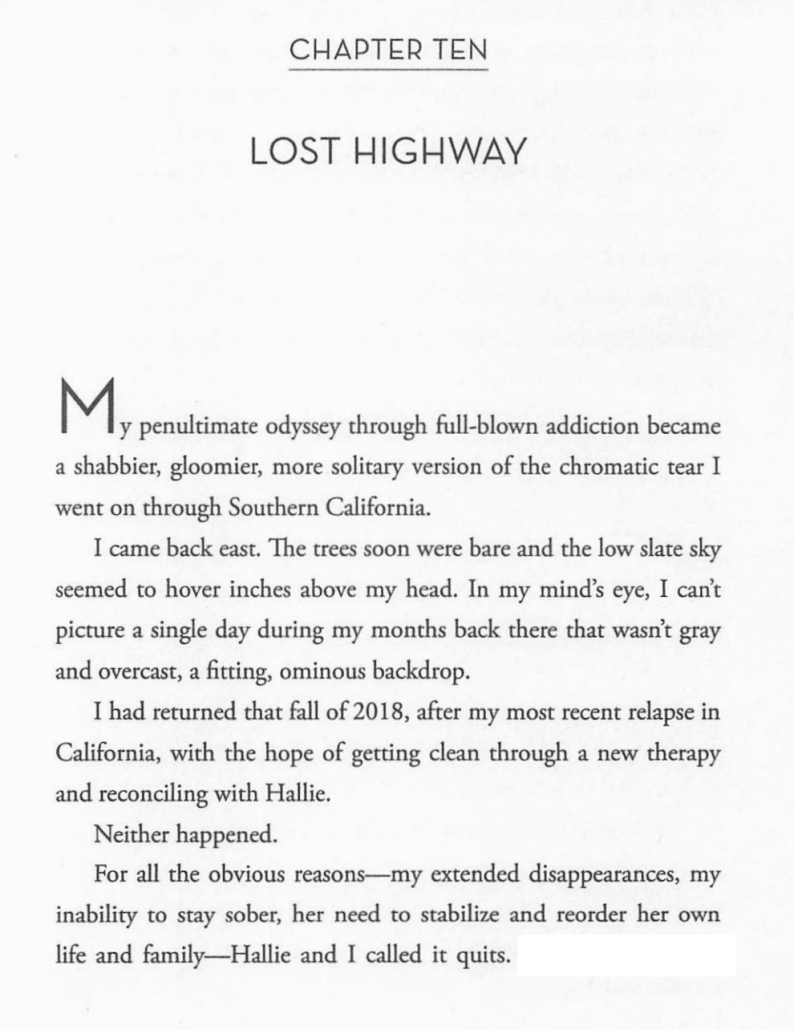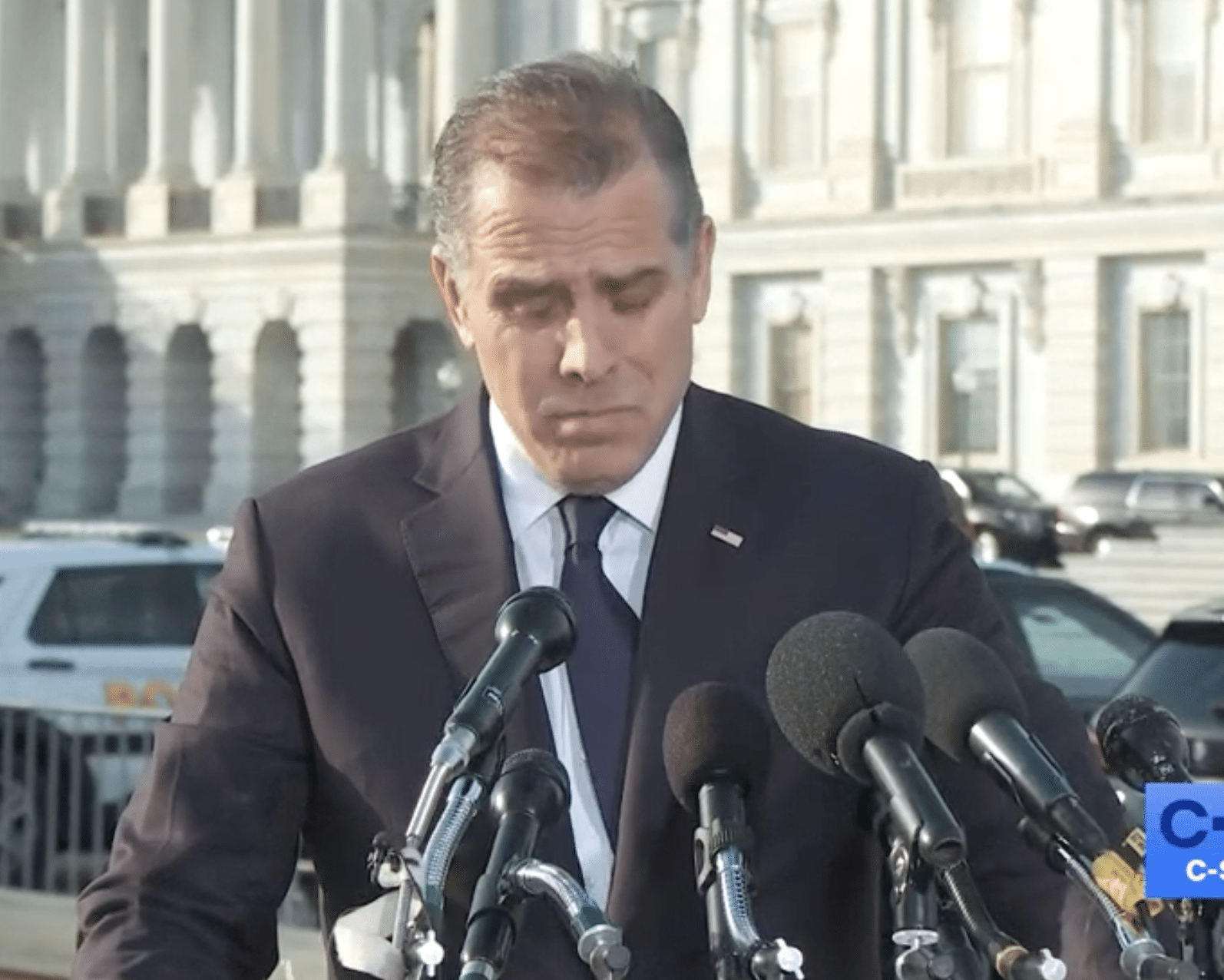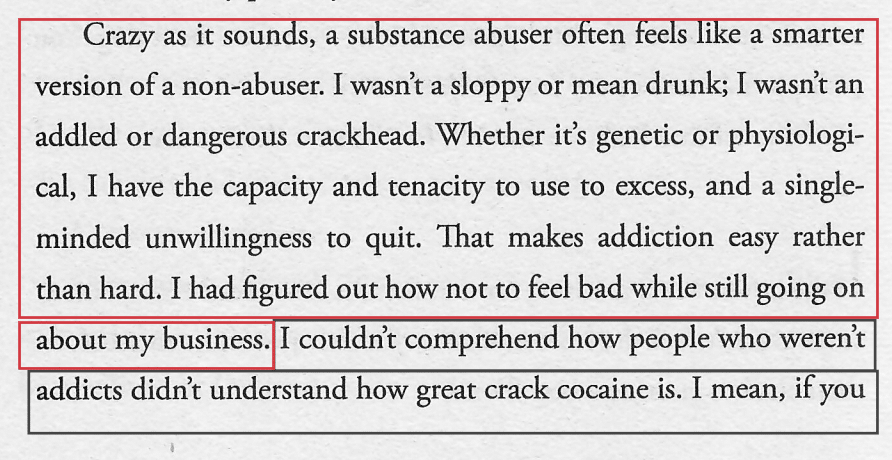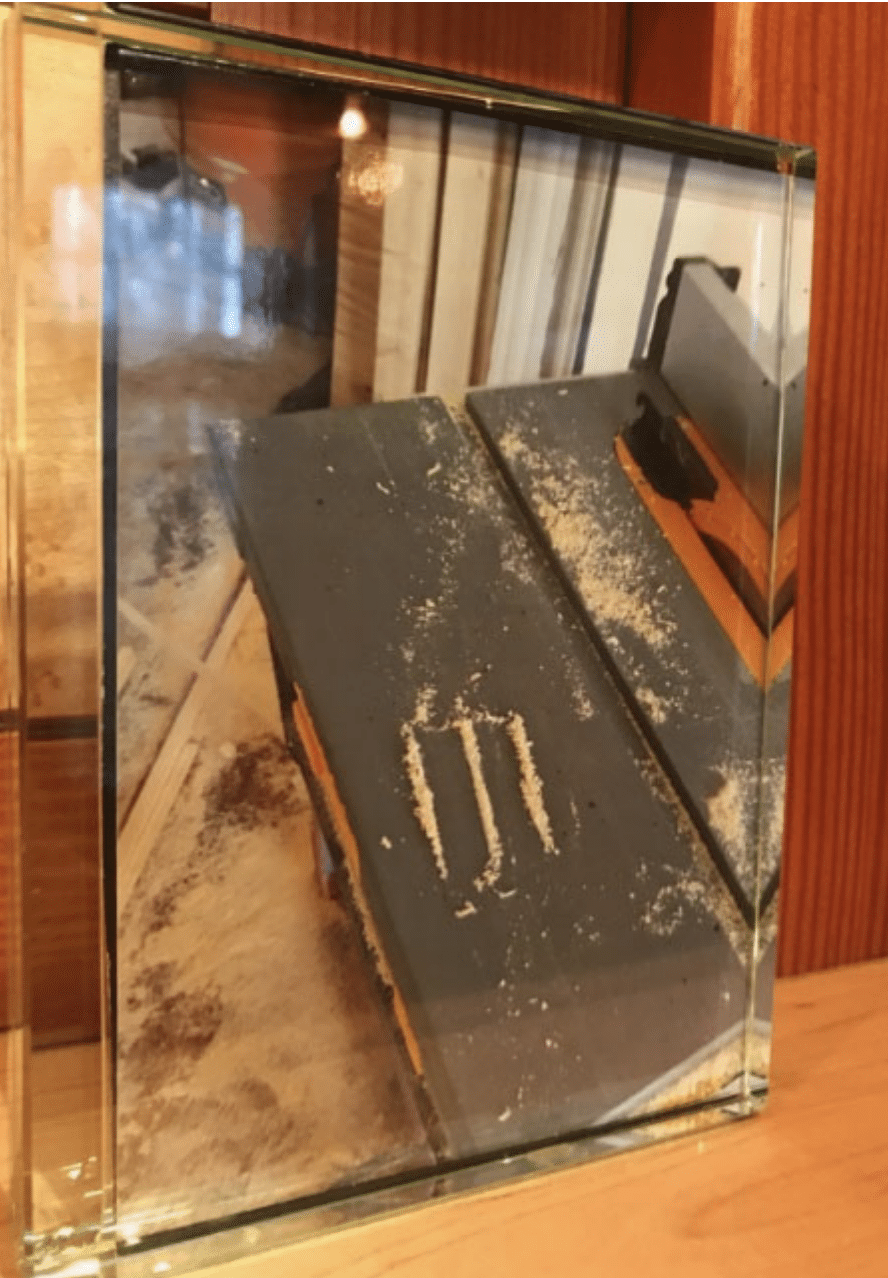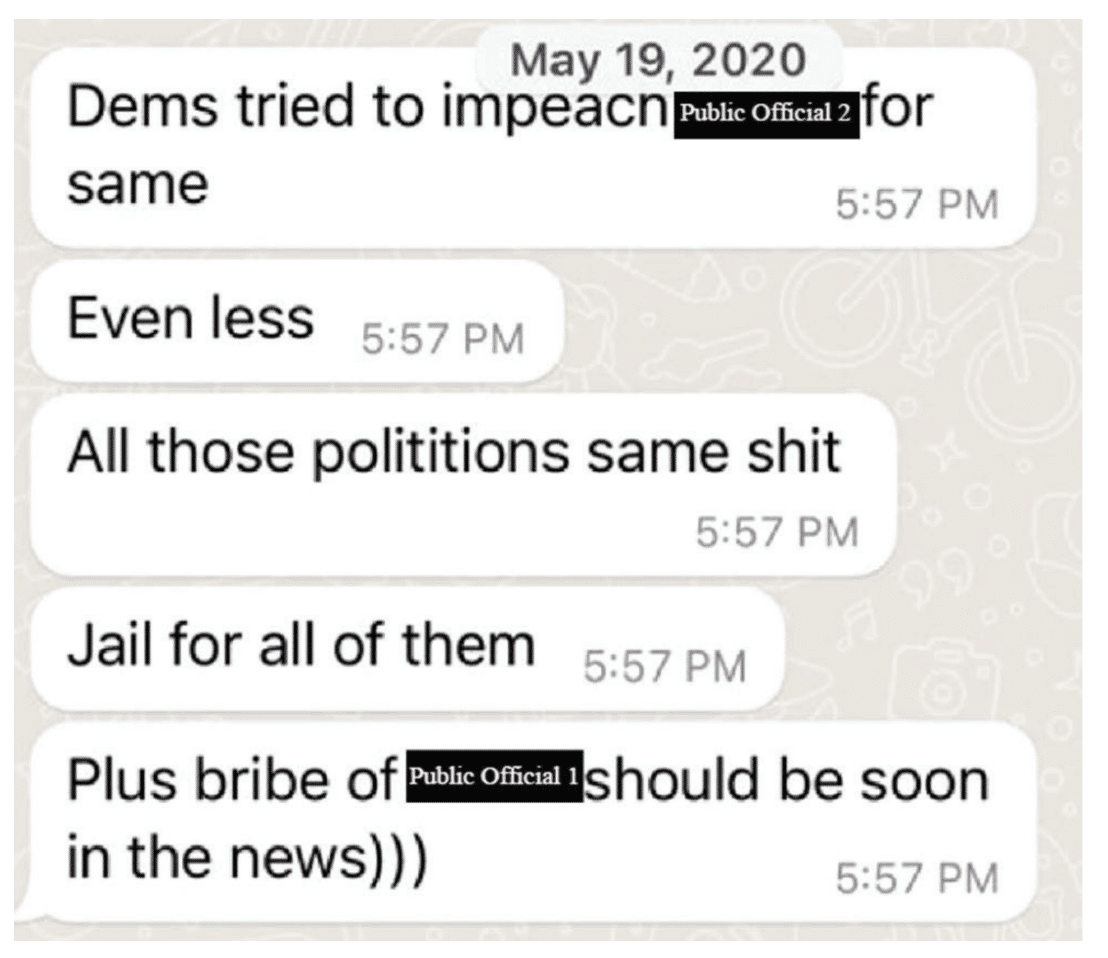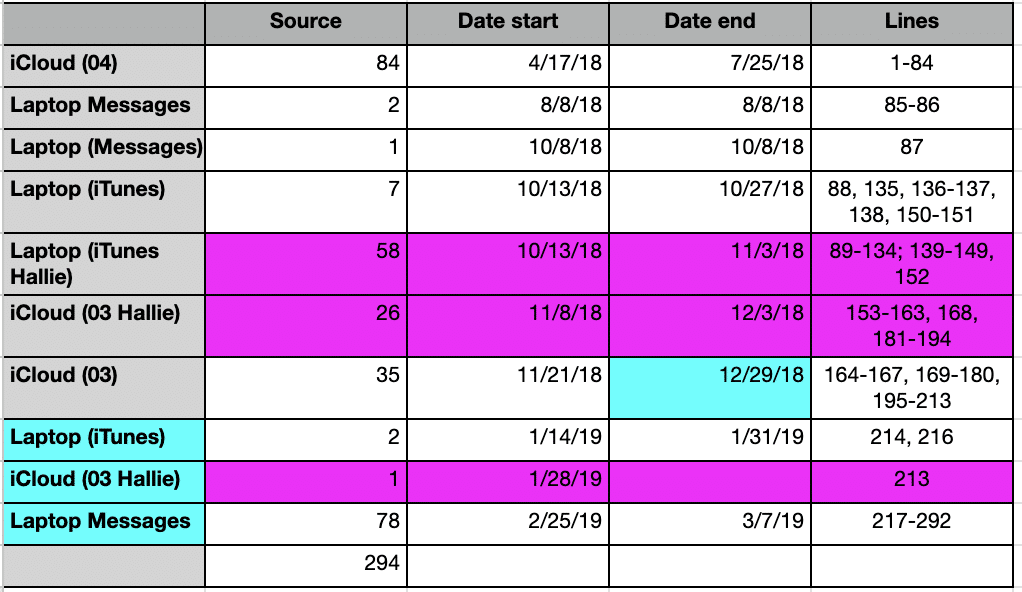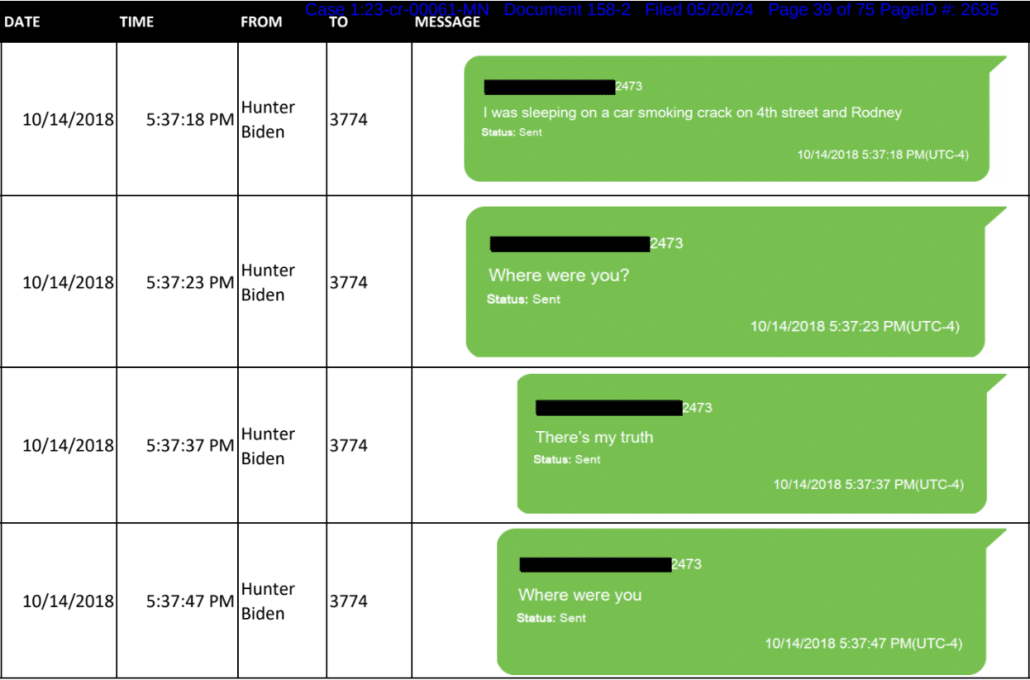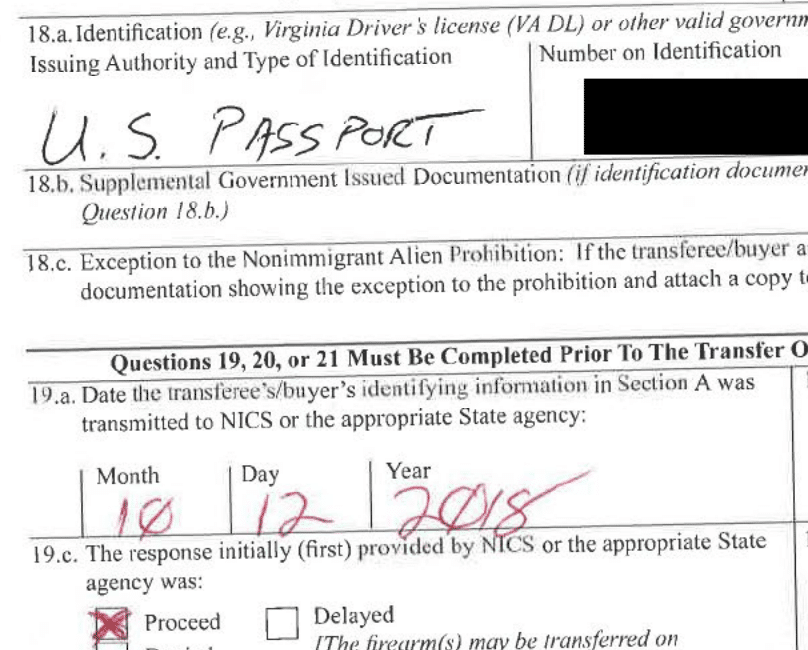Gaps and Forms: Hunter Biden’s Defense
The first day of the Hunter Biden trial revealed a lot about gaps in the prosecution’s case and Abbe Lowell’s plan to mount a defense.
As this post will show, it will be easier for prosecutors to prove Count 3, Possession of a Firearm by a Drug User or Drug Addict, than the two gun form crimes, even with Judge Noreika’s decision preventing Hunter from discussing how the gun shop sold a gun without obtaining the required ID.
What do prosecutors have to prove?
There are three counts against Hunter Biden: two for lying on a gun purchase form, and a third for possessing a gun while either being an addict or using illegal controlled substances. Given what will already be stipulated (things like that the gun shop is a federally licensed store), here’s what prosecutors have to prove for each:
Count 1: False Statement Material to Firearms Sale 18 USC 922(a)(6)
- Whether the defendant made a false statement when he filled out the Form 4473
- Whether the defendant knew the statement was false
- Whether the false statement was material to the sale
Count 2: False Statement in Firearms Transaction Record 18 USC 924(a)(1)(A)
- Whether the defendant made a false statement when he filled out the Form 4473
- Whether the defendant knew the statement was false
Count 3: Possession of a Firearm by a Drug User or Drug Addict 18 USC 922(g)(3)
- Whether the defendant was either an unlawful user of a controlled substance or a drug addict
- Whether the defendant knowingly possessed a firearm
- Whether the defendant knew he was an unlawful user of a controlled substance or a drug addict at any point in time between October 12 and October 23, 2018
Counts 1 and 2 involve Hunter Biden’s mindset at the moment he filled out the gun form on October 12. Count 3 involves what happened between October 12 and 23.
Note: Prosecutors are asking for a unanimity ruling on Count 3, meaning they want all jurors to agree on at least one of those conditions, that Hunter was an addict, or that Hunter used controlled substances while he possessed the gun.
What basis might Hunter Biden have for appeal?
If Hunter Biden is convicted, he will undoubtedly appeal. He would appeal on the rulings Judge Noreika already made. Those are:
- His diversion agreement immunized him from these charges
- This was a case of selective and vindictive prosecution and a violation of separation of powers
- 18 USC 922(g)(3) is unconstitutional
- David Weiss’ appointment and funding were unlawful
In addition, Hunter would appeal on at least two trial related issues:
- As applied constitutional challenge to 18 USC 922(g)(3)
- With her ruling on the gun form, Judge Noreika impaired his Sixth Amendment right to confront the gun shop employee witnesses against him
There’s an important dynamic here. The main gun charge, 18 USC 922(g)(3), might be appealed because it is unconstitutional for everyone under Bruen, or for the specific circumstances of Hunter Biden’s purchase, an as-applied challenge. But even if it were overturned, prosecutors have argued that the two false statements charges — particularly Count 2, which doesn’t involve materiality — would survive. Of course, those two false statements charges should be relatively easier to defeat, if Hunter were allowed to use the purchase form the gun shop doctored.
This is one of a number of reasons why Sarah Isgur’s argument that Hunter should just plead didn’t hold up. Because even a successful appeal on what Isgur mistakenly believed was his best appeal wouldn’t eliminate the exposure on gun crimes.
What evidence do prosecutors have?
There is no doubt that Hunter Biden is a recovering addict. The public, which has seen the pictures and even seen Hunter’s public statements, has little doubt of it. But what jurors will be considering is slightly different: whether Hunter considered himself an addict on October 12, 2018, whether he considered himself an addict at any time over the next 11 days when he possessed the gun, or whether he used controlled substances — crack — over those 11 days.
The government case has some surprising holes, because both of their main sources of evidence — Hunter’s memoir and his own digital evidence — actually don’t say much about his addiction or drug use over those 11 days.
Derek Hines spent much of yesterday playing excerpts of the audiobook of his memoir. But at least 11 of around 17 excerpts predate a rehab attempt Hunter made in August 2018 (many date to 2016), and so don’t say what the state of his addiction was for that period in 2018, and a number of them significantly postdate that period.
Update: The Court has posted yesterday’s exhibits here. Here’s the memoir as it came in as a physical exhibit. This is the entirety of the memoir introduced that pertains to the 11 days in question.
Similarly of the digital evidence submitted yesterday, roughly 29% predates the rehab attempt and 39% post-dates both it and the start of the Ablow Ketamine treatment that Hunter said in his memoir made his addiction worse (though that’s not in evidence).
One thing prosecutors plan to do is argue, fairly, that at all times in the four year period in question, Hunter was an addict. But that’s different than him viewing himself as an addict during those 11 days.
Two women will be absolutely critical witnesses to fill this gap. Zoe Casten, with whom Hunter was having a relationship, will reportedly testify that after Hunter did rehab in August 2018, she spent time with him in September 2018, and he was still using drugs.
Hallie Biden will authenticate a bunch of texts she exchanged with Hunter during the period in question (in pink in the table). Those texts show him telling her he was doing or buying crack, discussing his addiction, and also that he recognized she had taken his gun almost immediately, which will show that he knew he was a gun owner in the period in question. If her testimony is credible, it will go a great way to proving Count 3, because it will show he thought of himself as an addict during the period he owned the gun, probably used crack, and knew that he owned the gun.
Prosecutors have texts showing Hunter buying drugs in May 2018, November 2018, and February 2019. They don’t have any during the period he owned the gun. As a proxy for such proof, they have pointed to how much cash he was withdrawing from his bank account, implying that the cash went to pay for crack. It’s circumstantial, but jurors are instructed to use circumstantial evidence.
Hunter’s defense
To create reasonable doubt in jurors’ minds, Hunter needs to explain what he was thinking when he bought the gun and needs to discredit the evidence that will come in through Hallie that shows he used or considered himself addicted to crack during the 11 days.
To present his mindset when he bought the gun, Abbe Lowell described how Hunter simply wandered over to the gun shop while he was waiting for a replacement phone and got up-sold by the gun shop owner.
Across the parking lot from the AT&T store was another business. StarQuest Shooters and Survival. An interesting name. Later, from the AT&T store, as you’ll see in documents with time stamp, he went in, and you will see when he went into StarQuest, this is what he saw. You will see the evidence of what happened next. On display you will see in the front are a number of utility tools and knives, there were flash lights, and there were BB type guns. You will see that on that day, he bought one of each. So how did the purchase of the handgun come about?
As he walked around, a salesperson named Gordon Cleveland approached him. Mr. Cleveland will be a witness that Mr. Hines said will be theirs. Mr. Cleveland asked Hunter if he was looking for anything in particular. Hunter said he was browsing. Mr. Cleveland led Hunter to a display on the wall where the handguns were. Mr. Cleveland showed him the wall and asked if he was interested in buying a gun. The only time Hunter had any guns before was when he and his brother Beau went skeet shooting with shot guns. Mr. Cleveland explained what could be used at a range and selected a handgun for Hunter to see. Later, Mr. Cleveland also explained to Hunter the need for bullets and a speed loader. Hunter wouldn’t have known what a speed loader was until Mr. Cleveland told him.
But Hunter also confirmed that the gun came with a lock box to carry it in.
Cleveland told the prosecution that he doesn’t much care about paperwork — his job is just to make the sale. He did not walk Hunter through the gun form before he checked the boxes.
And the box that asks about drug use does not include a long paragraph after the fact explaining what it means like — for example — the question about whether you are a felon or not.
There are a whole bunch of tactical reasons why Lowell is doing this, I think, which I’ll return to. Effectively, though, he will argue that because the federal gun form does not define what being an addict is, if Hunter can provide evidence he relied on the form, then his mindset when he checked that box may not qualify him as an addict even though he was under the common jury instructions.
To discredit the evidence that he was using drugs during the period in question, Hunter will effectively argue he was too functional during the 11 days he owned a gun to be using crack, and that his references to being an addict in that period were references to alcohol.
In other words, Hunter will claim that the evidence he was addicted during those 11 days arises from abusing alcohol, not crack.
As to Hallie’s testimony? One thing he will do is attempt to prove that he was telling the truth in this exchange, in which he accused Hallie of taking the gun from the locked box in his truck, and she replied by claiming that the gun was not locked.
Hallie has told prosecutors the lock was broken. Hunter will get one of his daughters and uncle to testify that the lock was not broken. If he can get jurors to believe that Hallie only claimed the box was unlocked to excuse herself for getting him in trouble, then it might support his claim — otherwise a big stretch — that his references to doing crack were just attempts to tell Hallie to bug off.
There is a logic here, especially tactically. But Hunter faces a much steeper challenge on Count 3 than the gun form charges.
But it’s not impossible. Just as a measure of their concern, prosecutors are leaving the “knowingly” prong of the elements of offense off their statements anywhere they can get away with it (though some of that’s just expert prosecutorial dickishness).
It’s one thing to prove Hunter was an addict. That’s easy.
It’s another thing to prove precisely what he was thinking in those 11 days in October 2018.


